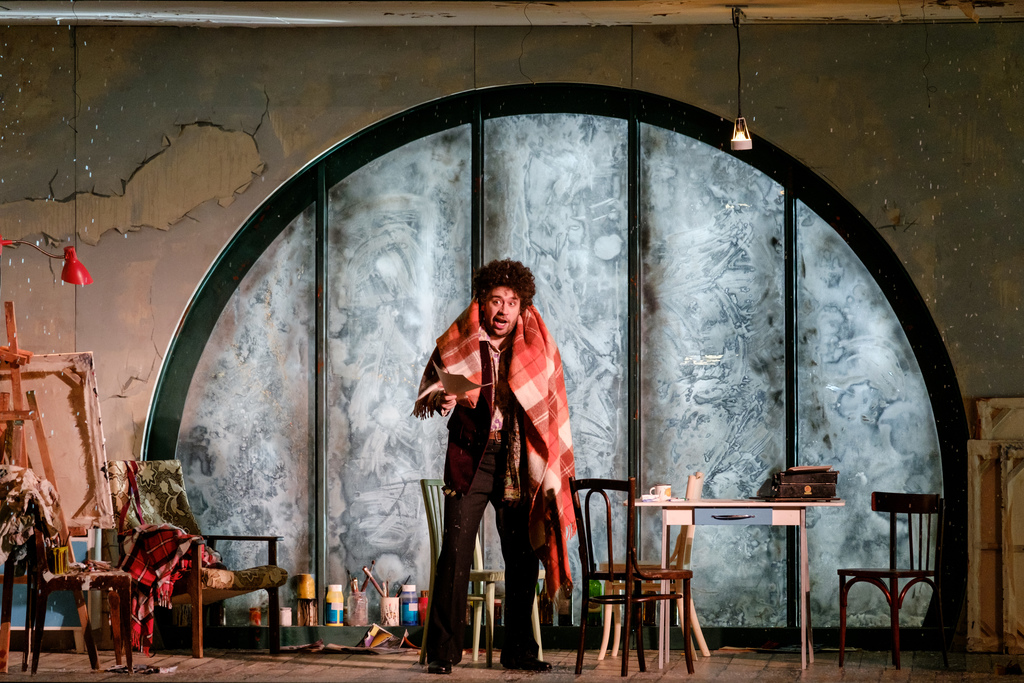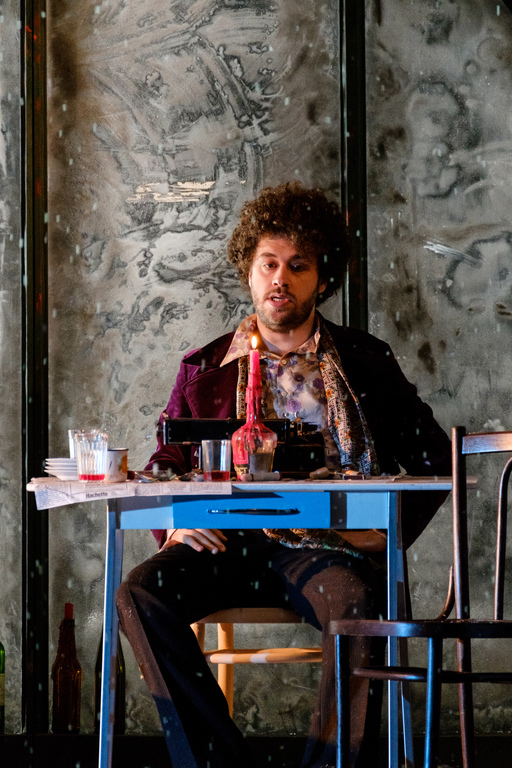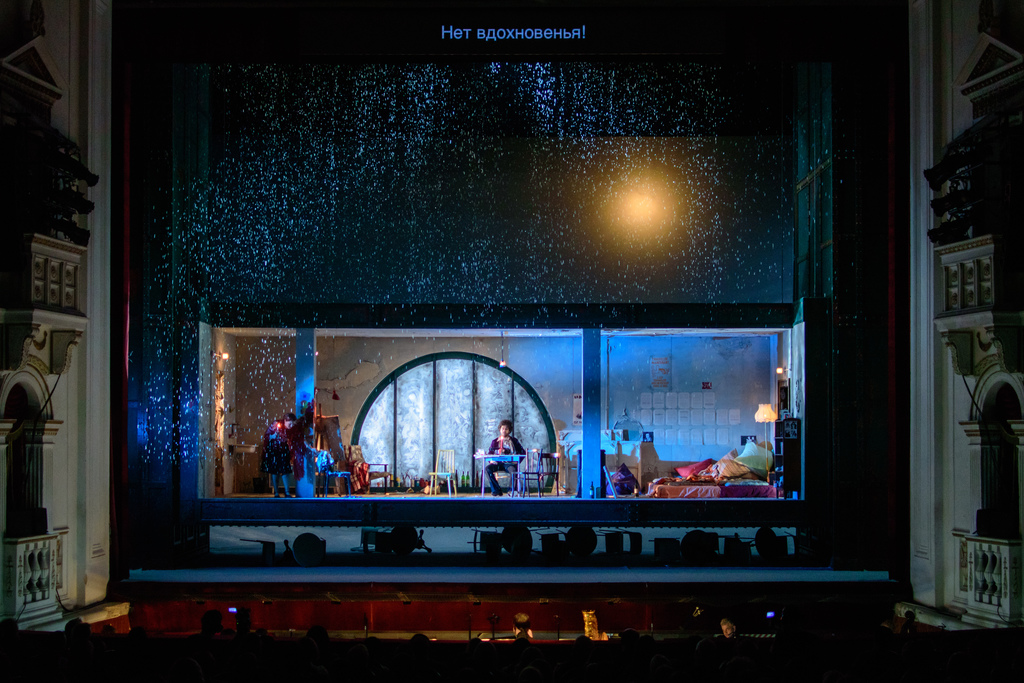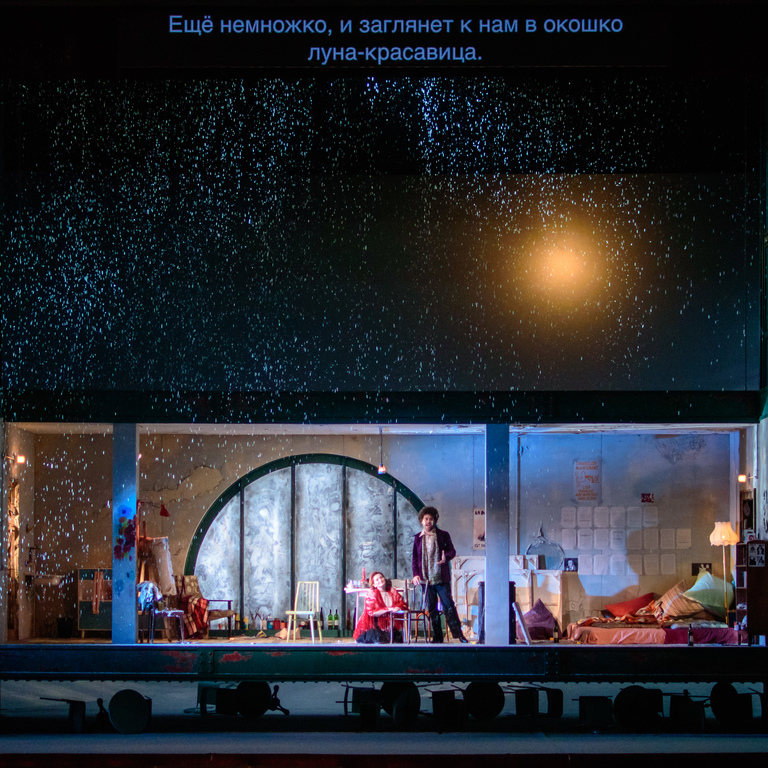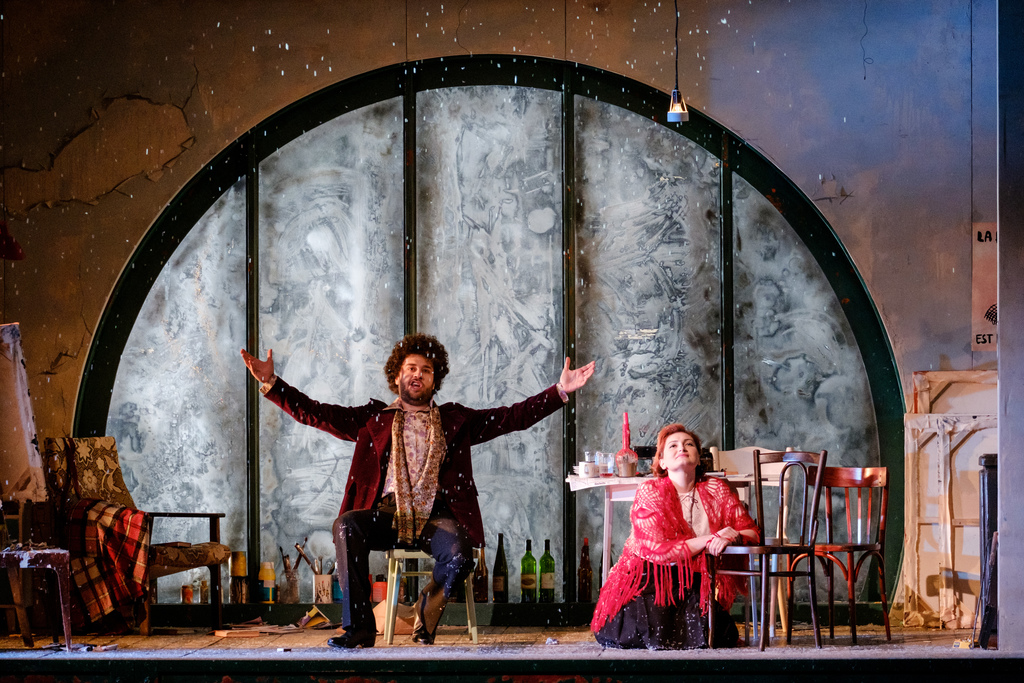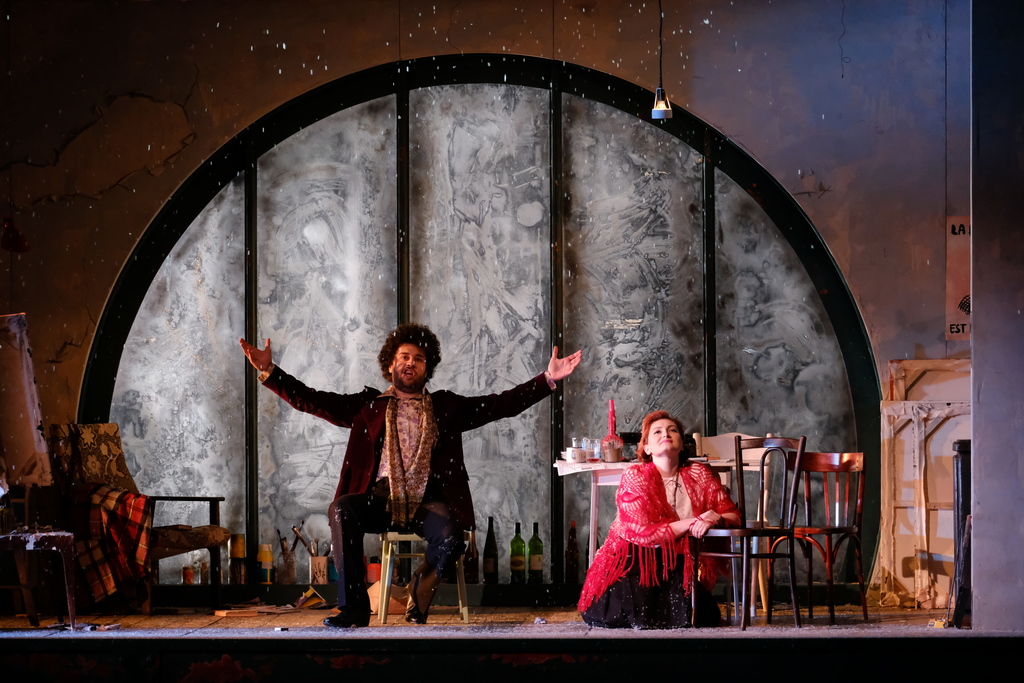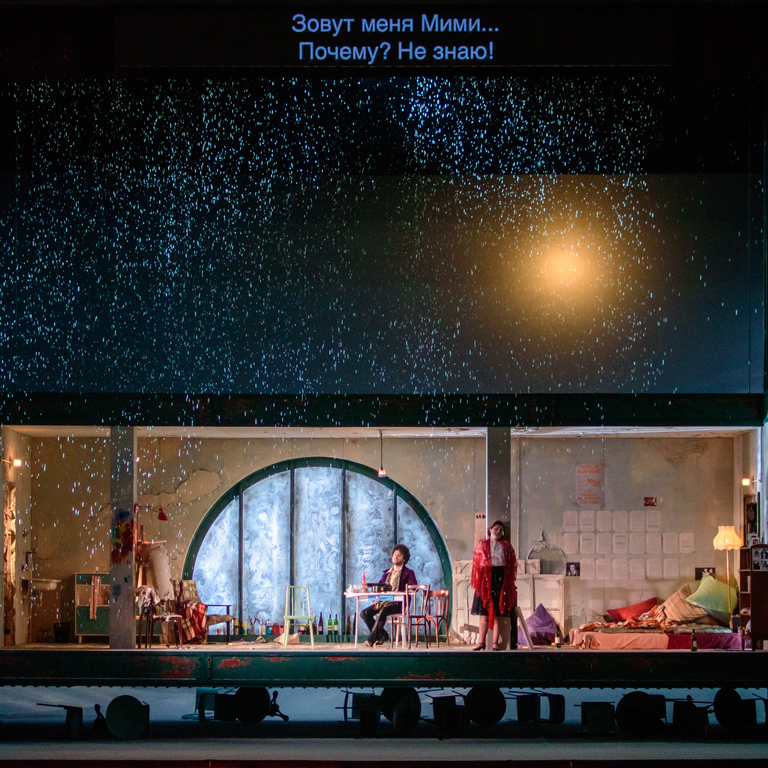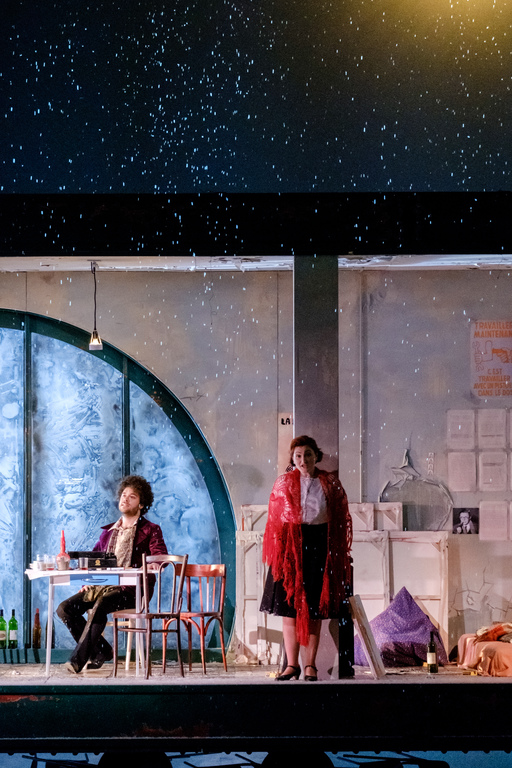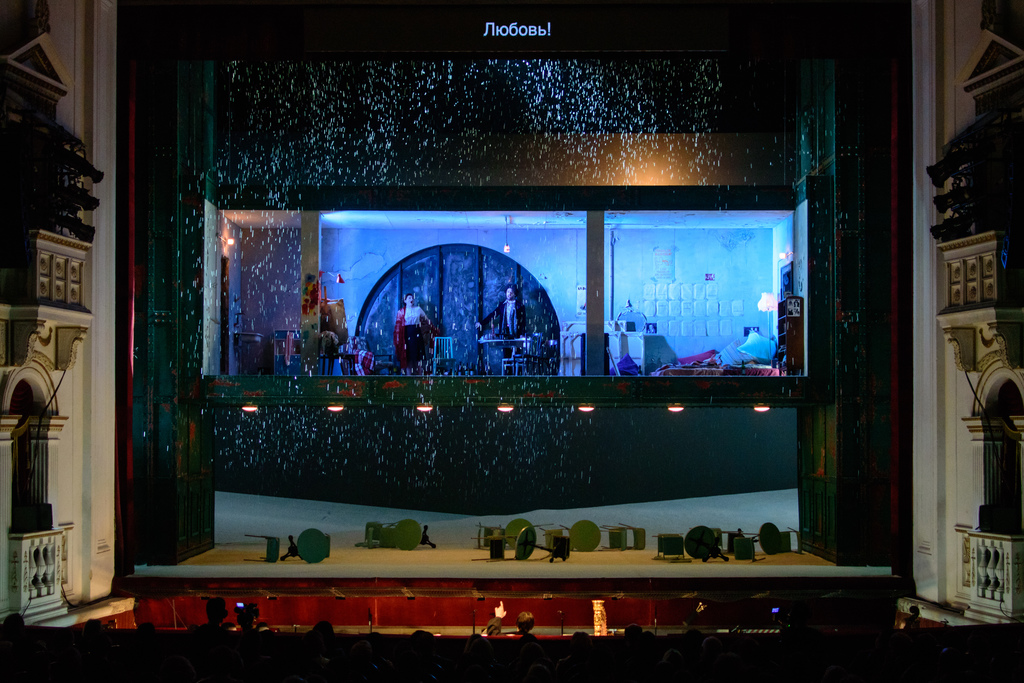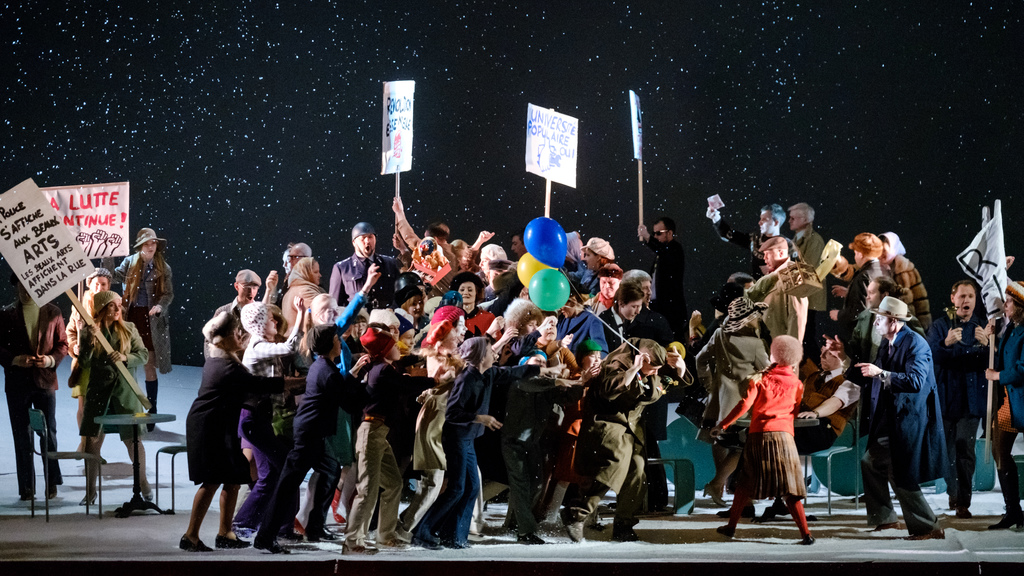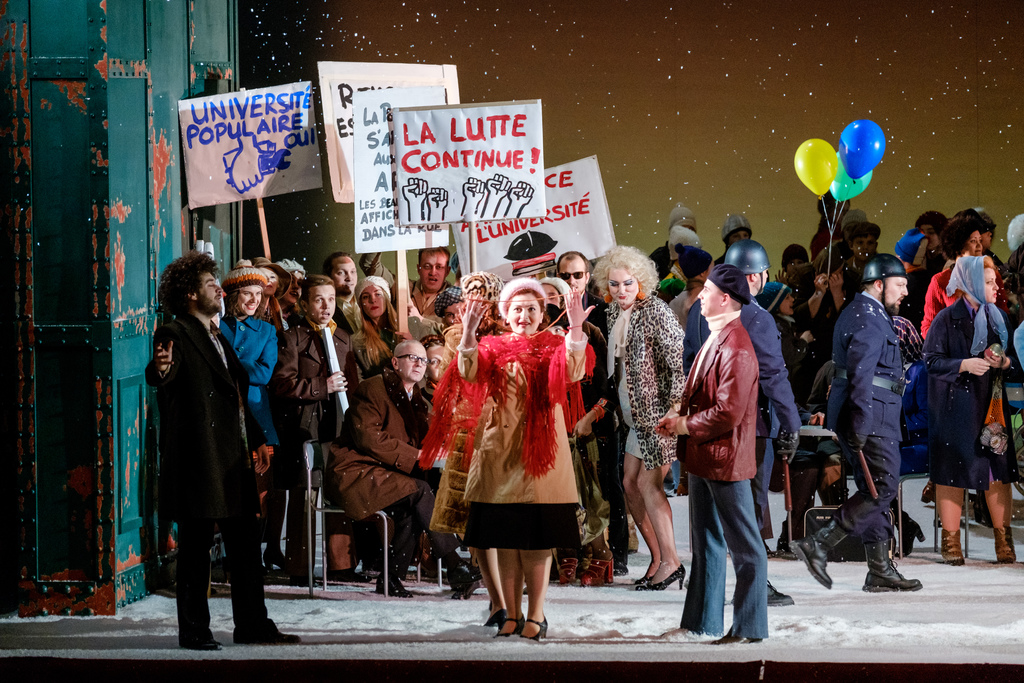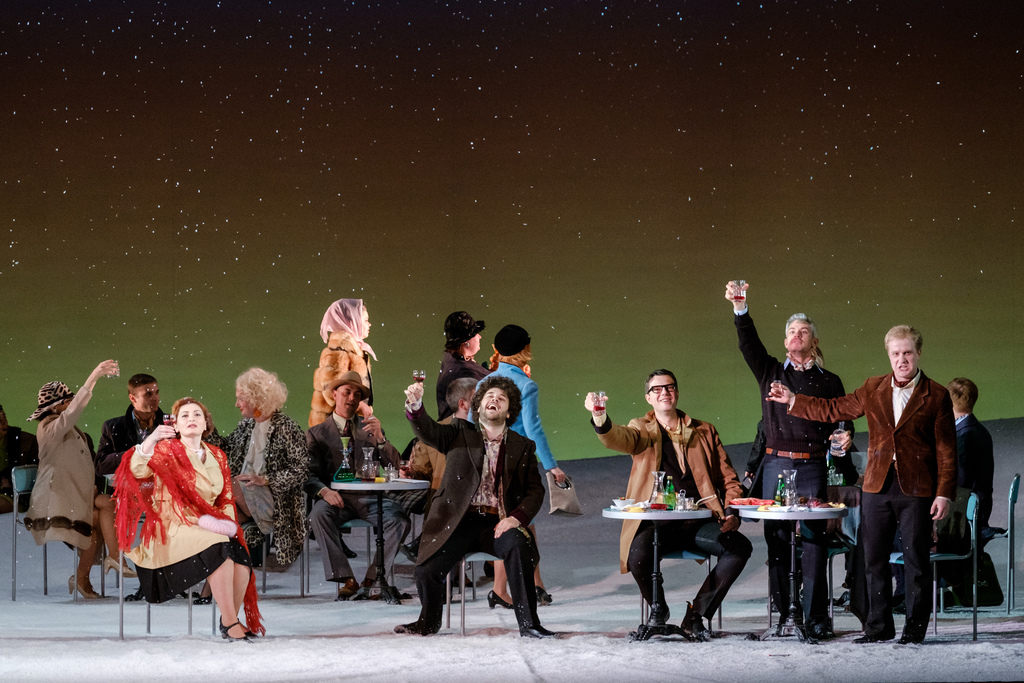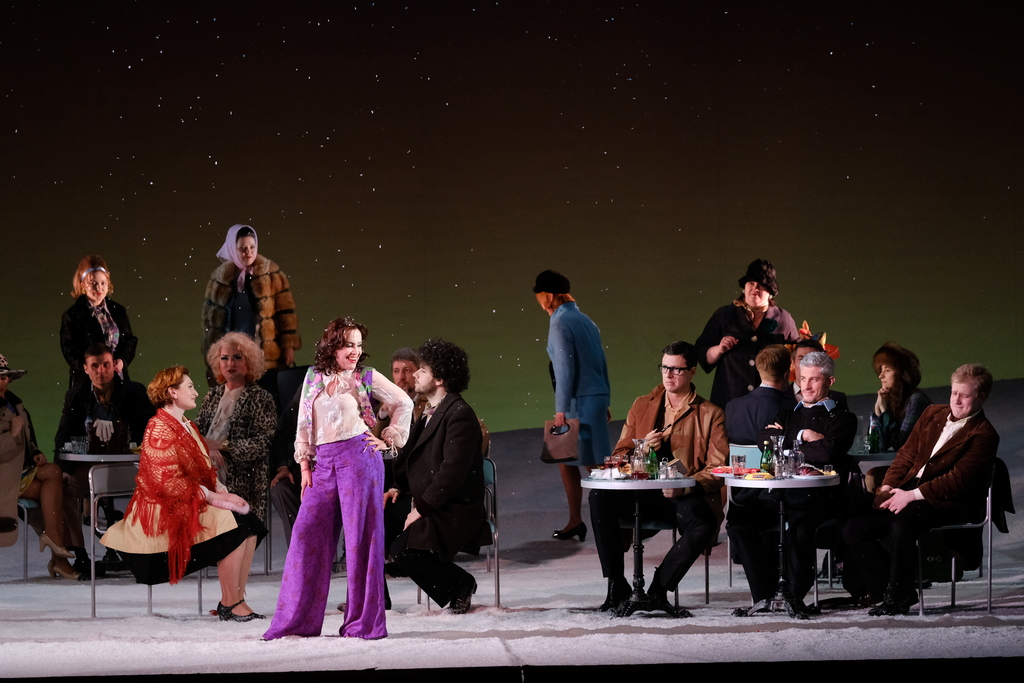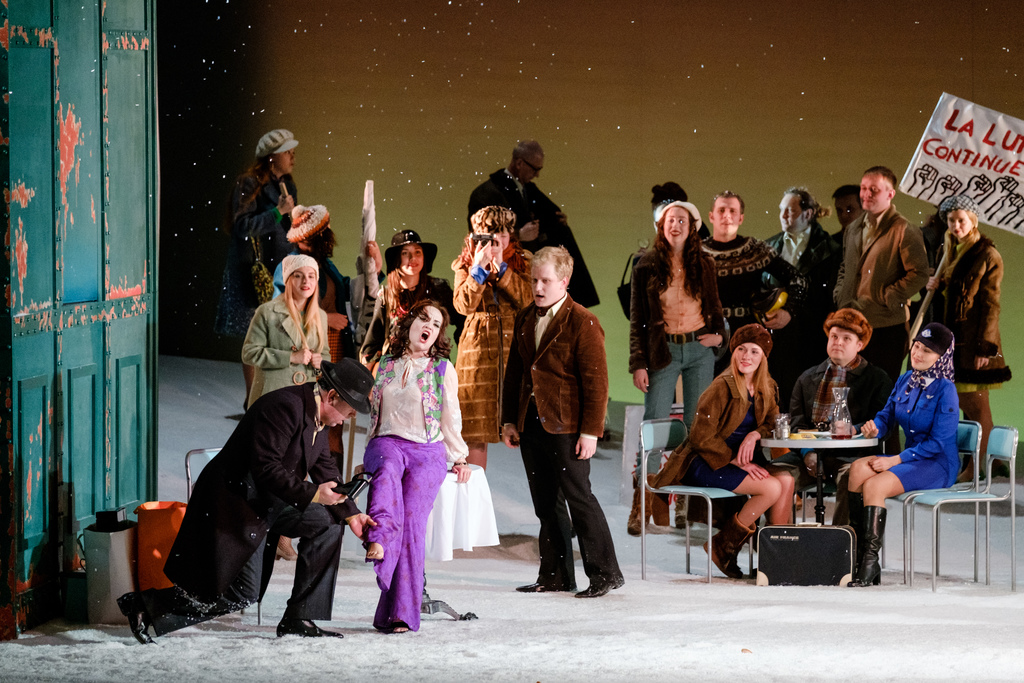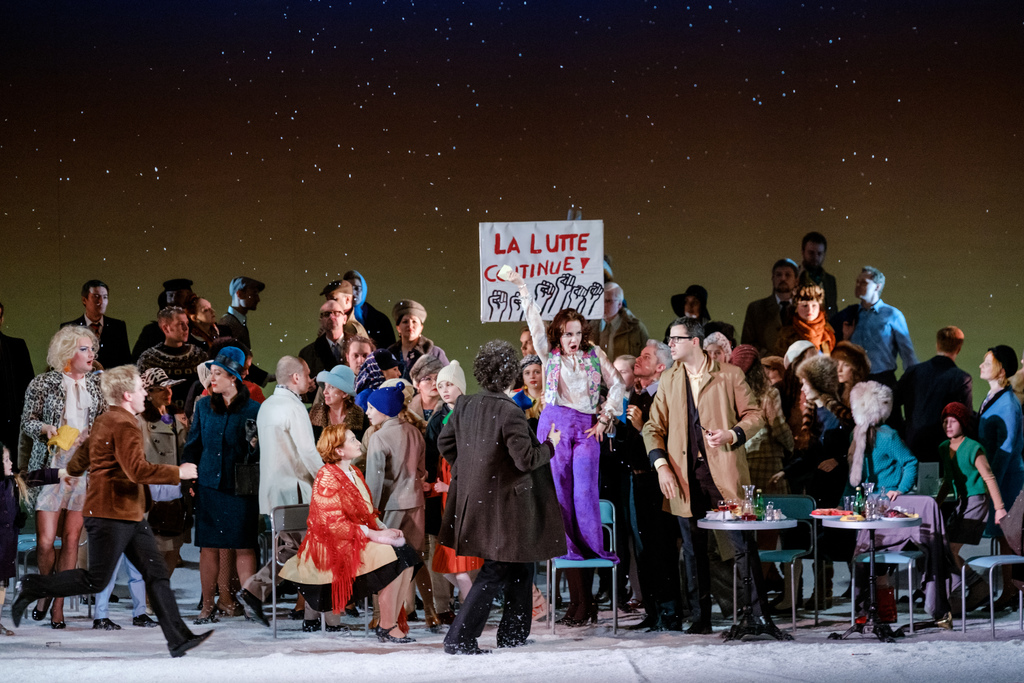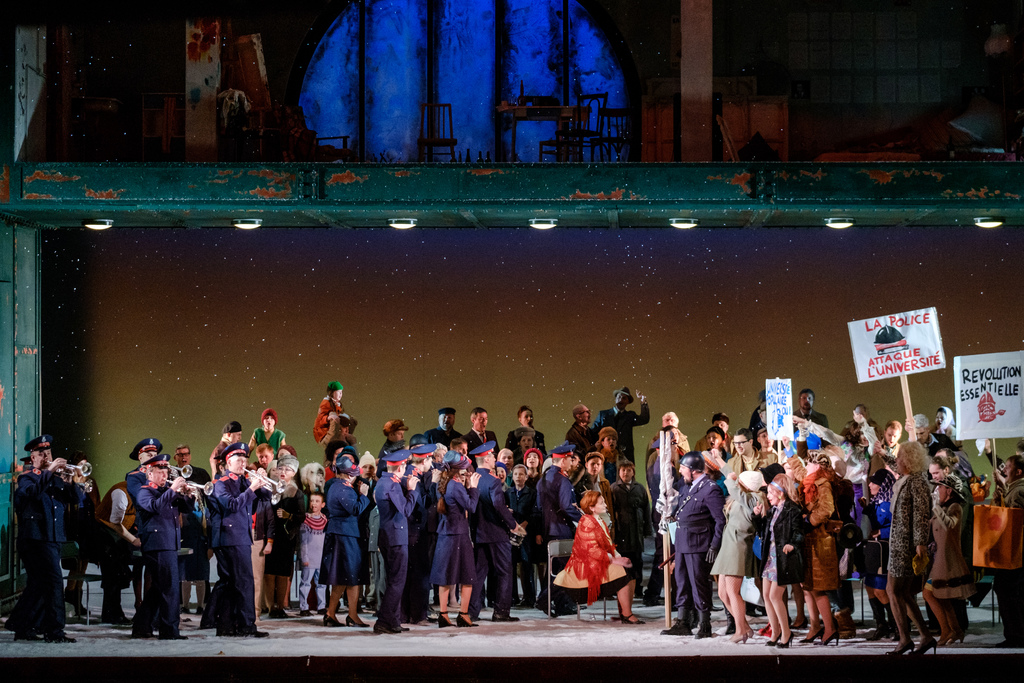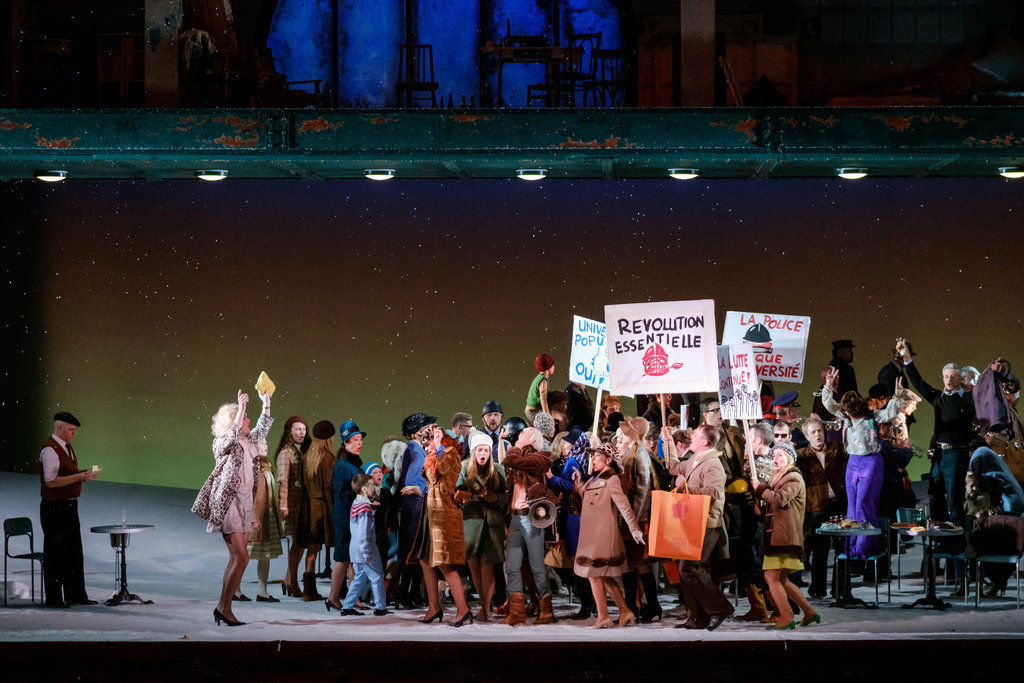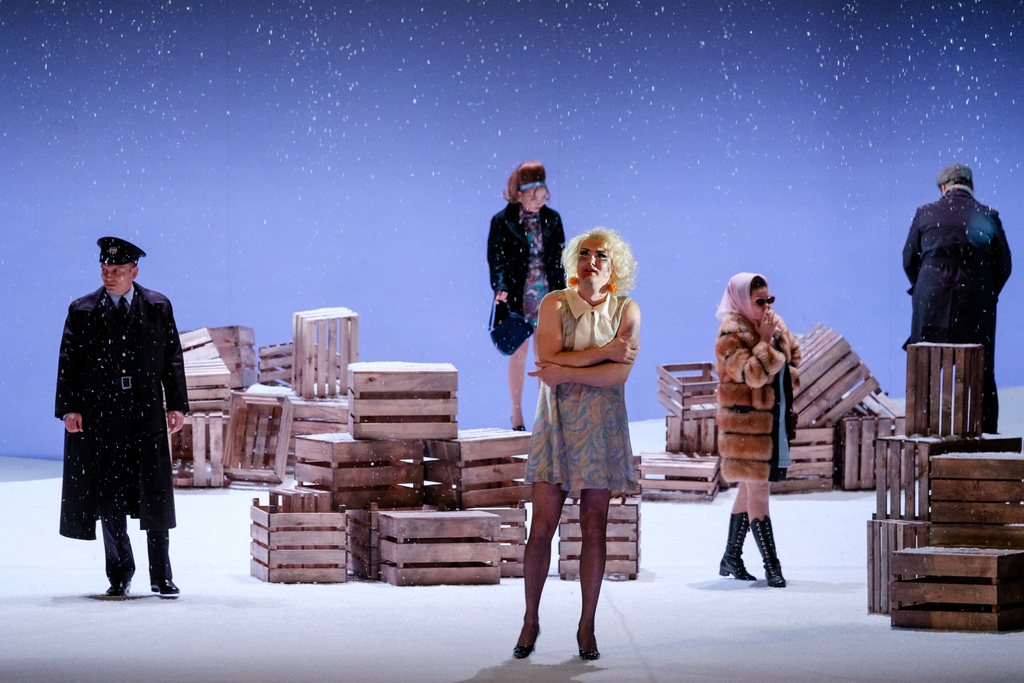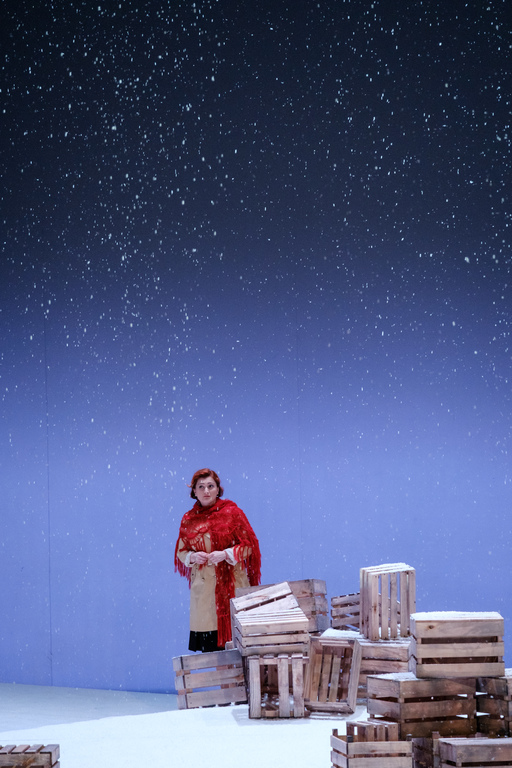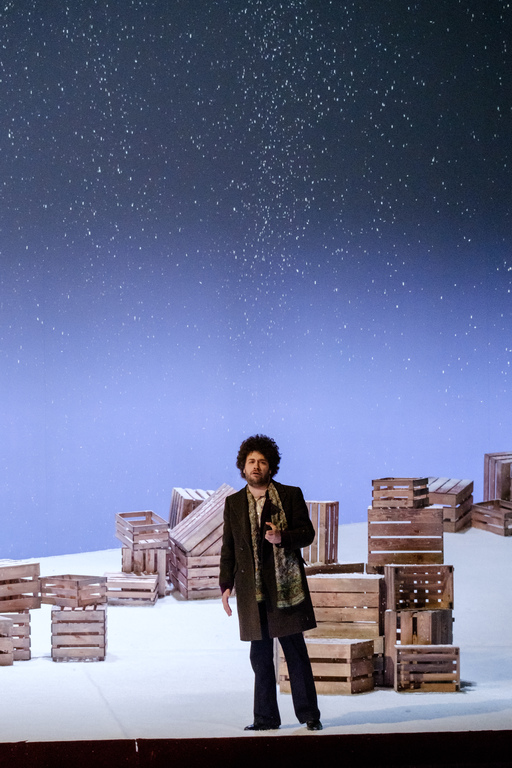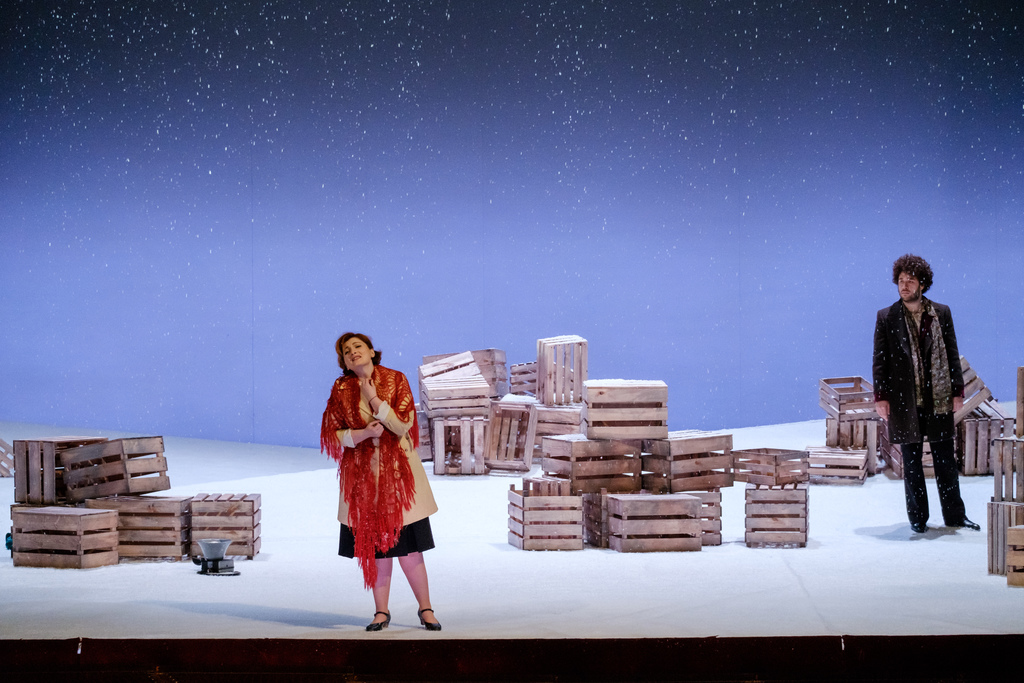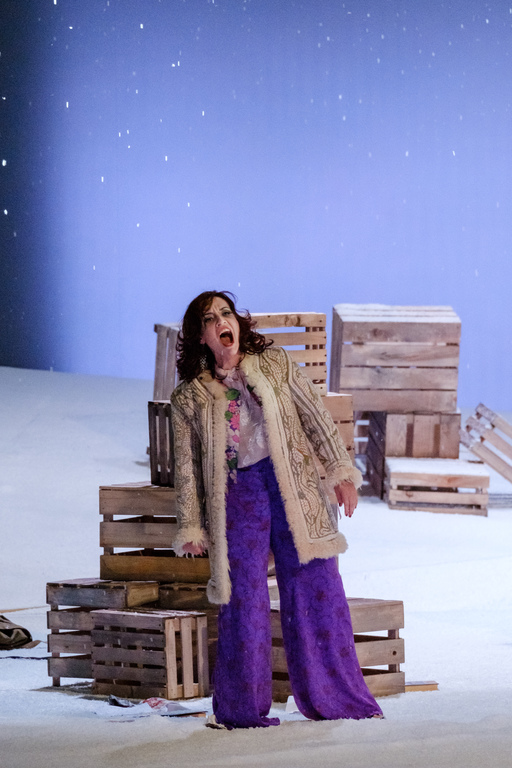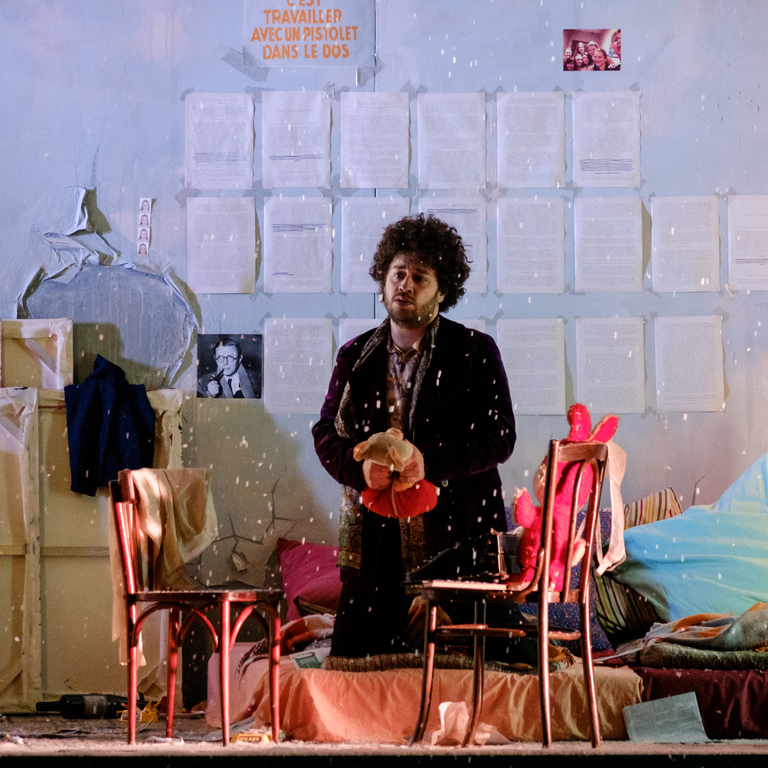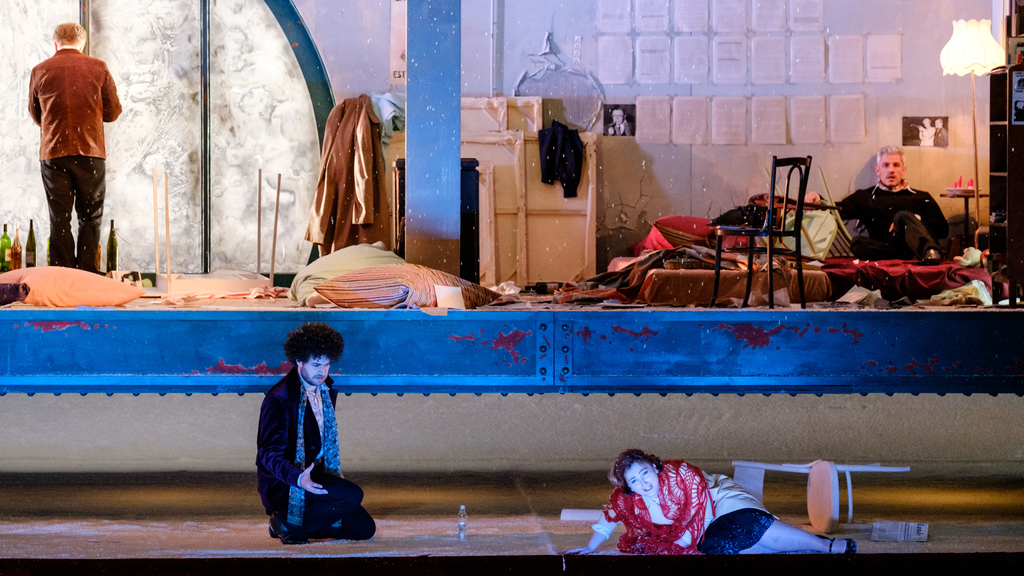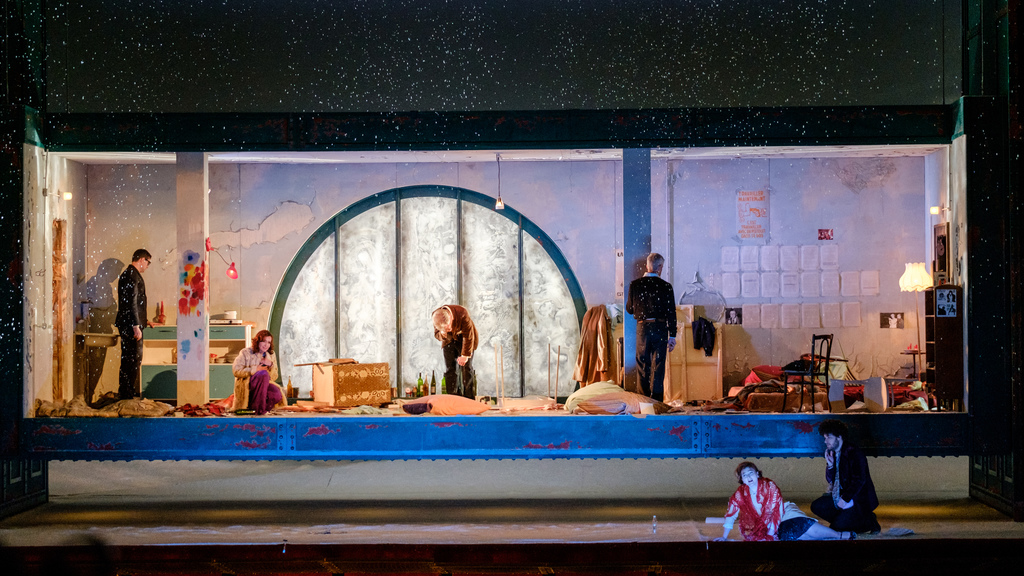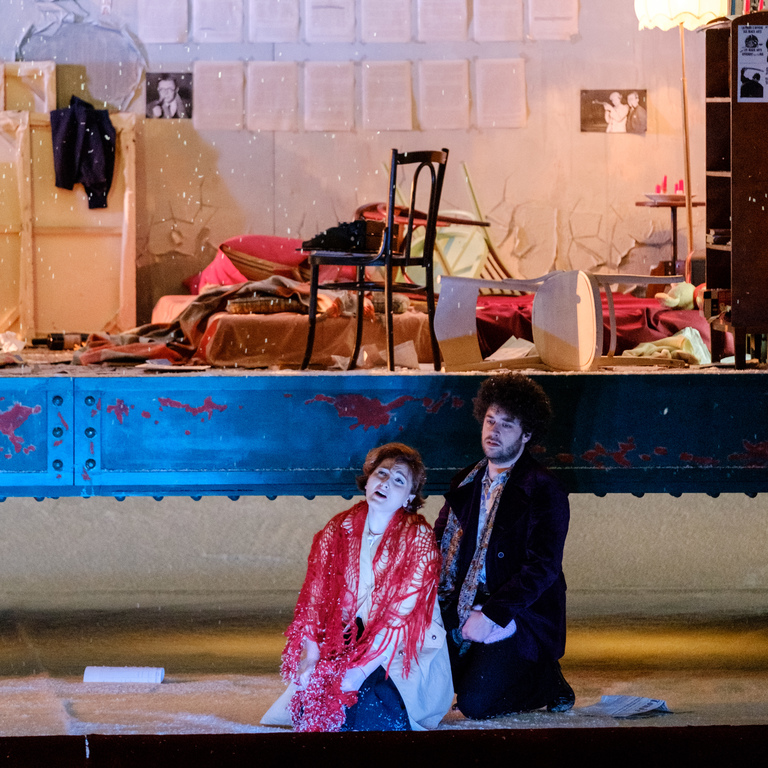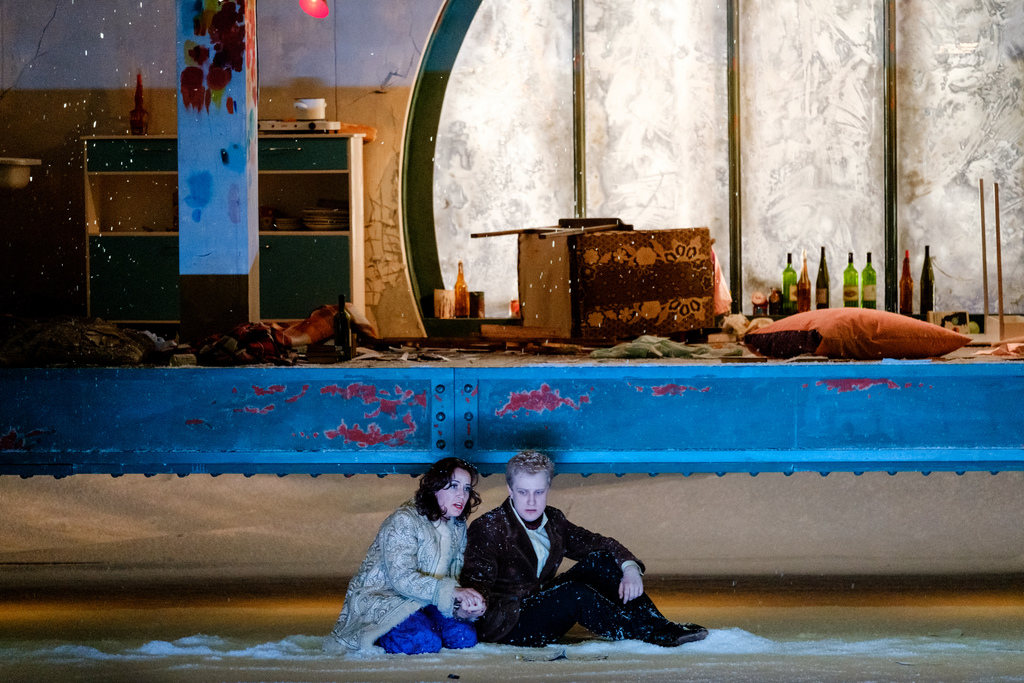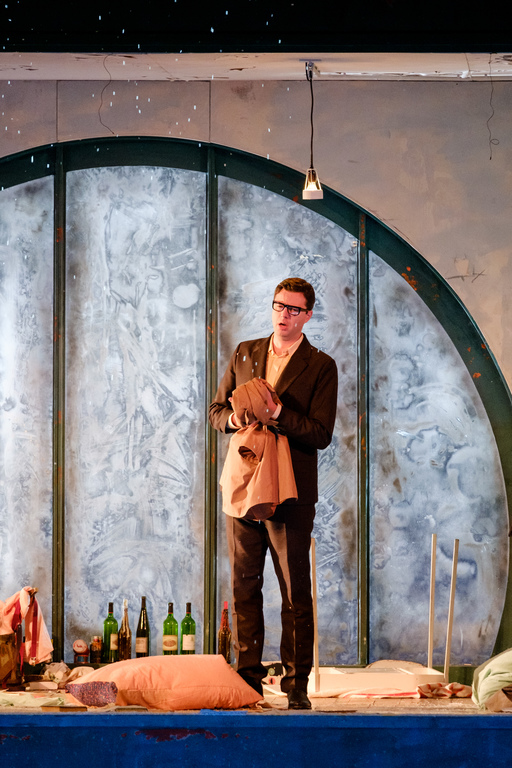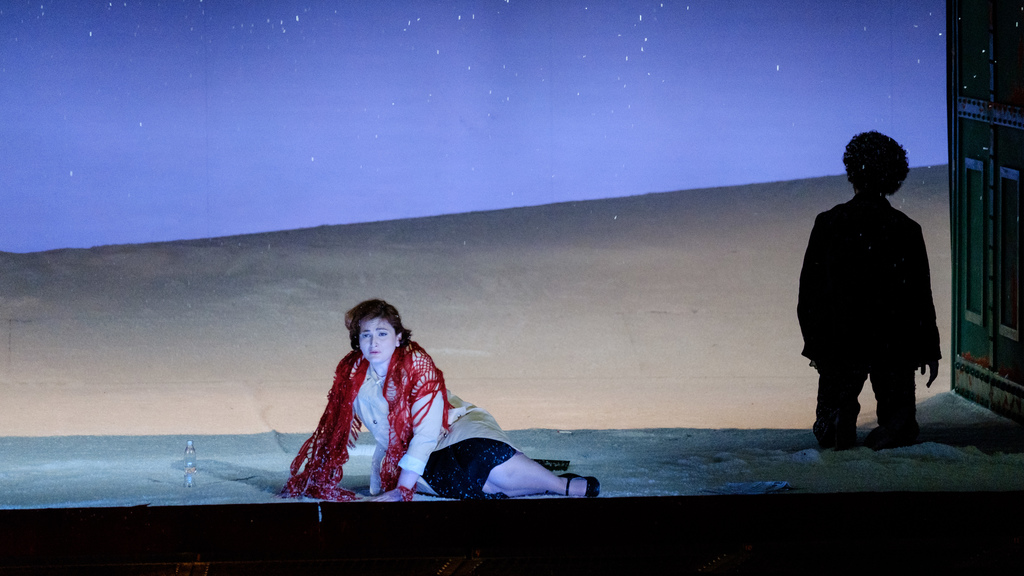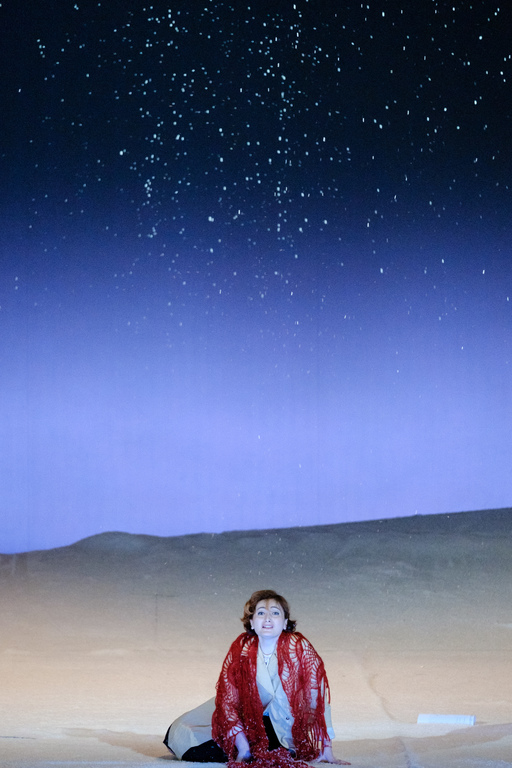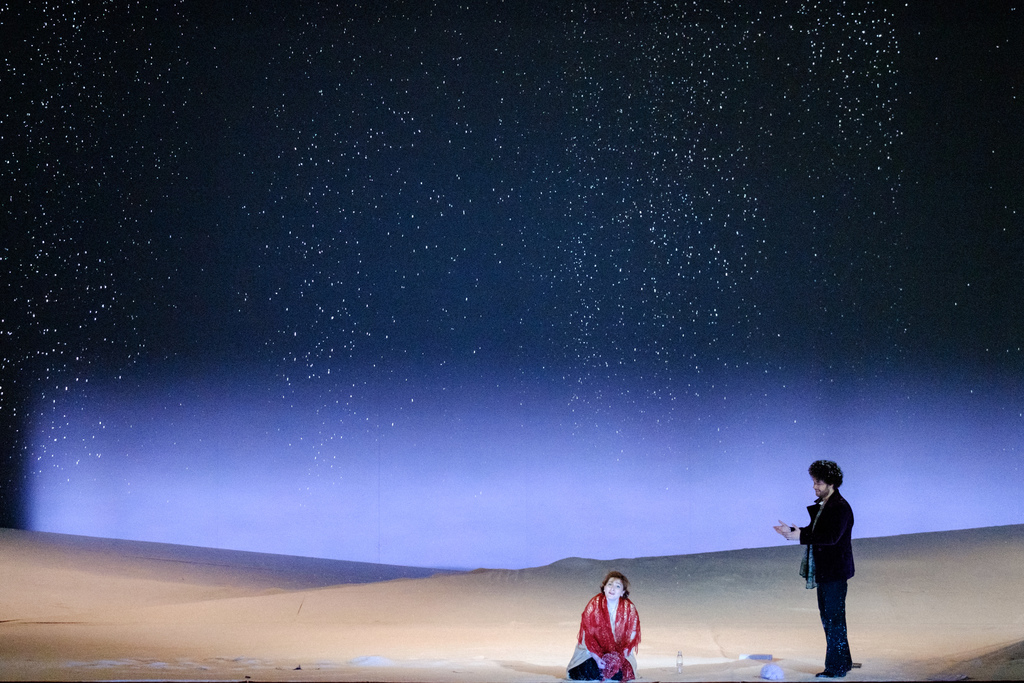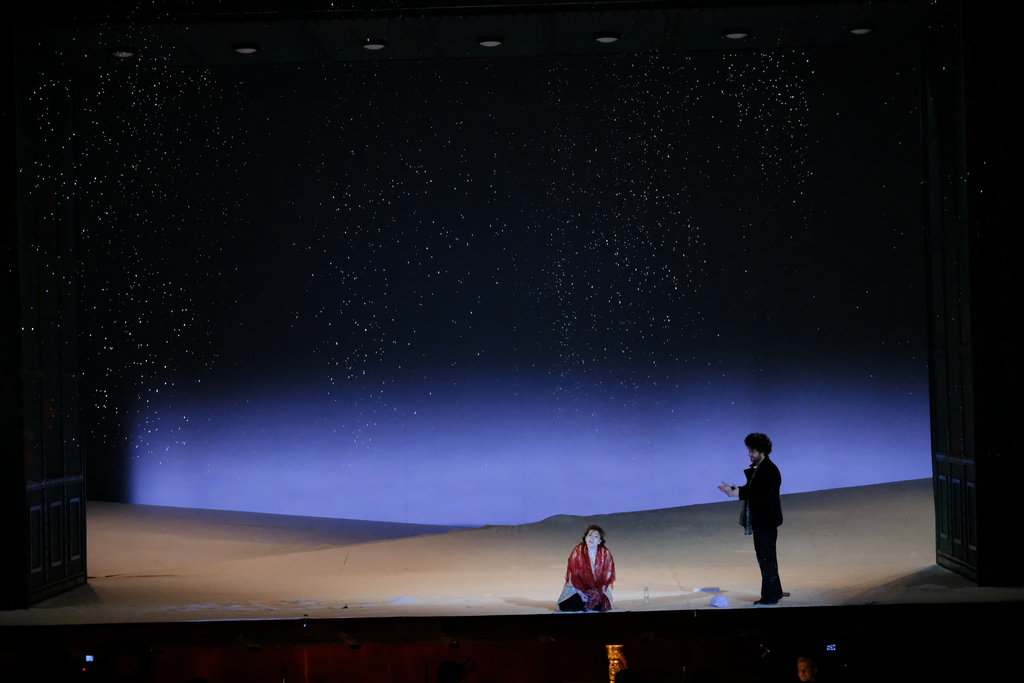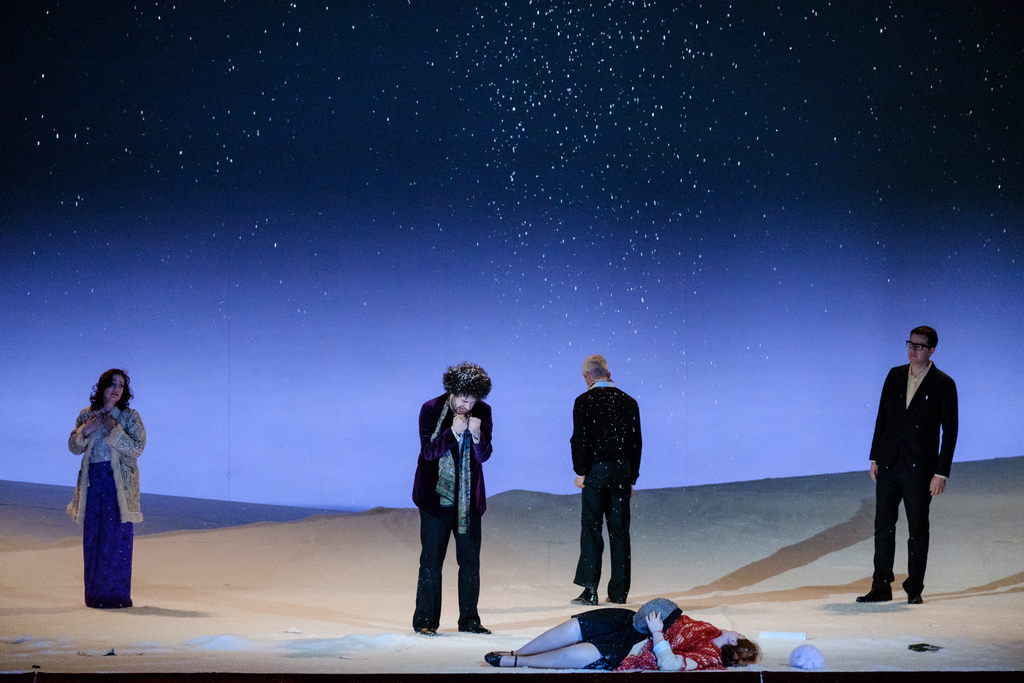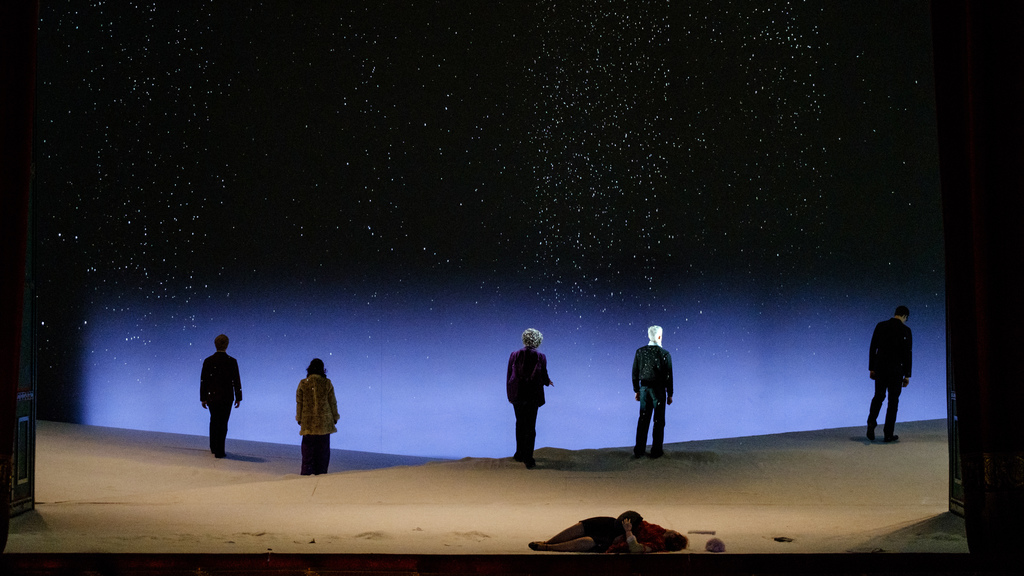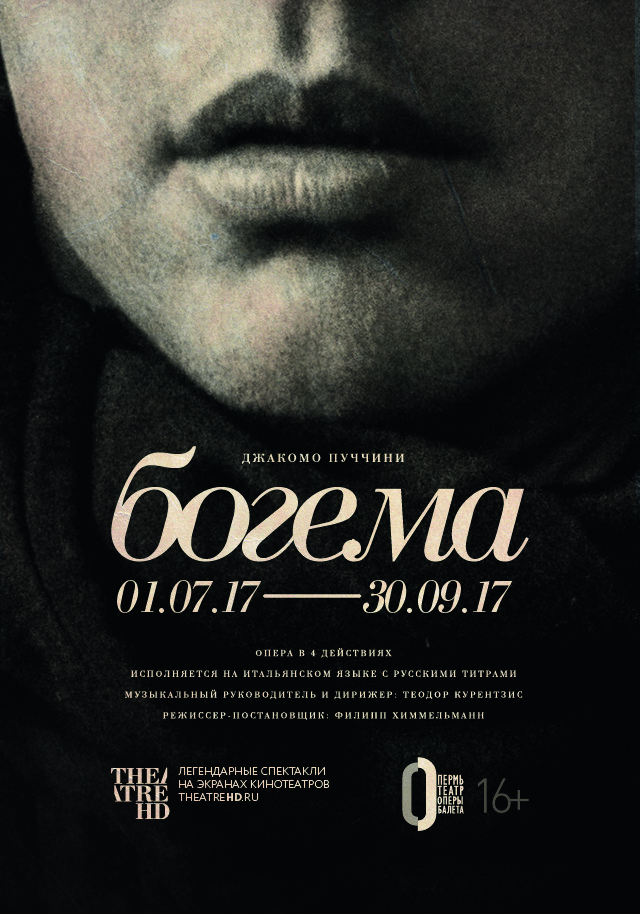
Giacomo Puccini
LA BOHEME
PREMIERE
Libretto by Giuseppe Giacosa and Luigi Illica,
based on ‘Scenes de la Vie de Boheme‘ by Henri Murger
LA BOHEME
PREMIERE
Libretto by Giuseppe Giacosa and Luigi Illica,
based on ‘Scenes de la Vie de Boheme‘ by Henri Murger
A co-production by Festspielhaus Baden-Baden and Perm Opera
Musical Director and Conductor Teodor Currentzis
Stage Director Philipp Himmelmann
Set Designer Raimund Bauer
Costume Designer Kathi Maurer
Lighting Designer Henning Streck
Production Chorus Master Vitaly Polonsky
Chorus Master Tatiana Stepanova
Assistant Conductors Artyom Abashev, Ektoras Tartanis
Assistant Stage Director Matthias Lutz
Assistant Set Designer Lolita Hindenberg
Assistant Costume Designer Wiebke Warskulat
Vocal coach Medea Iassonidi
Musical Director and Conductor Teodor Currentzis
Stage Director Philipp Himmelmann
Set Designer Raimund Bauer
Costume Designer Kathi Maurer
Lighting Designer Henning Streck
Production Chorus Master Vitaly Polonsky
Chorus Master Tatiana Stepanova
Assistant Conductors Artyom Abashev, Ektoras Tartanis
Assistant Stage Director Matthias Lutz
Assistant Set Designer Lolita Hindenberg
Assistant Costume Designer Wiebke Warskulat
Vocal coach Medea Iassonidi
Cast of characters:
Rodolfo — Davie Giusti
Marcello — Lonstantin Suchkov
Schaunard — Edwin Crossley-Mercer
Colline — Deyan Vatchkov
Benoit, Alcindro — Garry Agadzhanyan
Mimi — Zarina Abaeva
Musetta — Nadezhda Pavlova
Parpignol — Segey Vlasov
Sergeant — Evgeniy Ikatov / Vicktor Shapovalov
Artists of MusicAeterna chorus, children’s theatre studio, opera chorus and extras
MusicAeterna Orchestra
Marcello — Lonstantin Suchkov
Schaunard — Edwin Crossley-Mercer
Colline — Deyan Vatchkov
Benoit, Alcindro — Garry Agadzhanyan
Mimi — Zarina Abaeva
Musetta — Nadezhda Pavlova
Parpignol — Segey Vlasov
Sergeant — Evgeniy Ikatov / Vicktor Shapovalov
Artists of MusicAeterna chorus, children’s theatre studio, opera chorus and extras
MusicAeterna Orchestra
La Bohème is a gem of late 19th century lyrical psychological opera. It follows the traditions of Verdi's La Traviata and is dedicated, according to music historian Mikhail Muginstein, to the "sad mystery of life investigated from the perspective of time’s irreversibility."
Philipp Himmelmann, a stage director from Germany, is known to Russian audiences as the director of Mozart's Le nozze di Figaro staged in Perm in 2012. His interpretation of the opera by Puccini is set in Paris in the 1960s. It was a legendary time that gave birth to the new cinematography, fashion and understanding of the role of personality in history.
The production’s stage designer is Raimund Bauer, well-known for his work with leading theatres and festivals in Europe, while Kathi Maurer, who has worked on performances at the Salzburg Festival, RUHRtriennale and the Aix-en-Provence Festival, is costume designer.
«The bohemians, who have been around since time immemorial, are people who differ from others in the sense that they want to be characters of the book of being and not just its readers. People with imagination, people who can dream.
If you take a look at the history of at least the last hundred and fifty years, it becomes clear that neither their way of life nor their values, have in fact changed: the bohemians of the late 19th to early 20th century and the bohemians of the 21st century do not differ much. They are creatures that live beyond time and create their own space, they are united by a special creativity and the search for alternative strategies in life. Moreover, they will never grow old or become obsolete.
Puccini’s La bohème is a work that gives an opportunity to live through the adventures of creativity and love again and again. It is an opera very close to musicAeterna’s heart, owing to the fact we are a bohemian orchestra. We love to play this opera, because we feel its very essence from within. For a time, some of our musicians also lived in the same house and within those four walls, stories similar to those portrayed in the opera unfolded in front of my very own eyes. The libretto is based on Henri Murger’s book ― Scènes de la vie de bohème ― which is set in the middle of the 19th century, and today everything repeats itself: the bohemia is defenceless and I've been observing it my entire life.
The bohemians have only two options for building their own world: to reconcile with the rules and merge with the system or to continue to fight for the right to live and against feeling on the periphery till the end of their days.
Imagine a meeting of two old friends who have not seen each other for 20 years. Both have succeeded professionally, and they end up reminiscing about their youth in the attic. Sooner or later they recall how they once resisted the system, how they shared wine and bread, how they had fun and painted the town red. And they remember the girls they loved: one of them died, the other wanted to save the bohemian world, the artists painted pictures of her, and the poets devoted their poems to her. And meanwhile ― here they are ― as young revolutionaries, today successful and fulfilled, reminiscing about their youth. It’s the sweetest feeling when you see yourself 20 years earlier, full of hope or hopelessness. When you try to speak to yourself but your younger self is oblivious to what you have to say. La bohème produces exactly this bitter-sweet feeling.
For me, La bohème is a reference point, a huge party to which we invite the people we once lost. It is a feast where we share our stories, our experiences, and some brilliantly written music. Everyone will find something in it. In the academic sense this work has an ideal form and a very dramatic content. But first and foremost, it is a story of love that travels along the river of time and picks up these forgotten heroes.
La bohème is a story about fragile people creating fragile beauty. This is a story about angels trying to create their own life on earth».
Teodor Currentzis, Musical Director and Conductor

